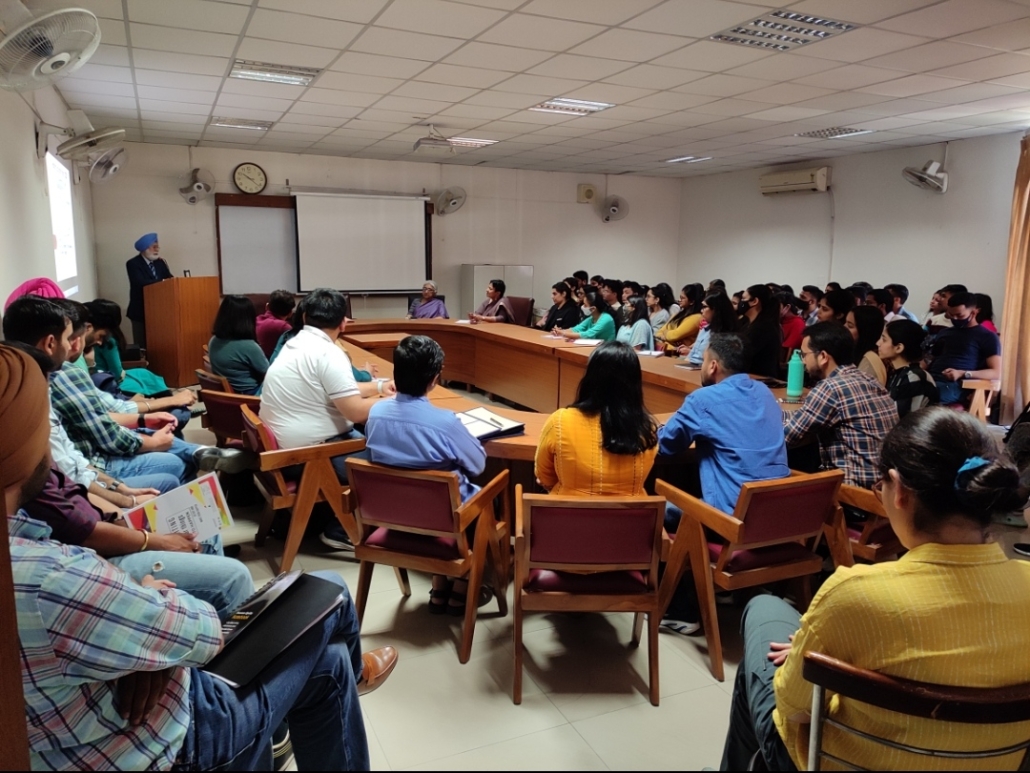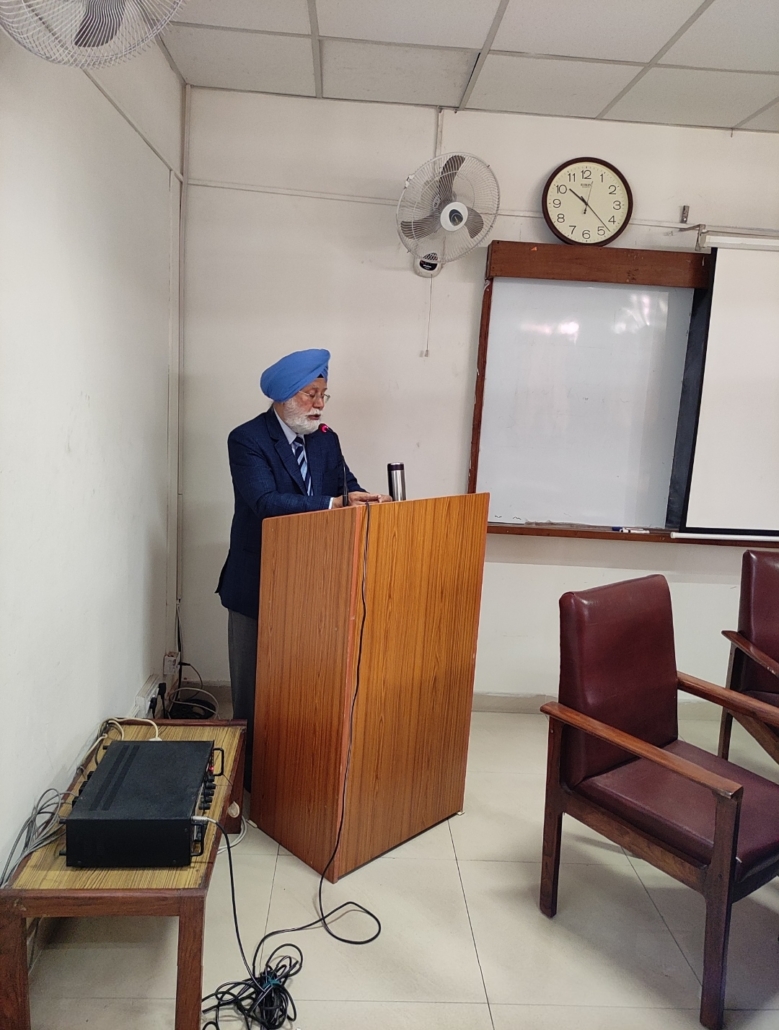Chandigarh March 15, 2022
The Department of Public Administration organized a special lecture on National Education Policy 2020 and Governance Issues under Lecture Series “Public Policy: Theory and Praxis” today. Professor B.S. Ghuman, Former Vice-Chancellor, Punjabi University, Patiala was the speaker. He highlights the policy issues related to Higher Education. Further, he elaborated on various verticals of NEP, 2020. Some of these were Developing multi-disciplinary education; Undergraduate degree program with the flexibility of multiple exit options; Phasing out the affiliation college system over a period of 15 years; Integration of vocational education with mainstream education; Making higher education all-inclusive; Regulatory Authority; Setting up of National Research Foundation; Implementation and etc.

At present, higher education is heavily regulated but poorly governed. With a view to reduce regulation and improve the quality of governance, the NEP has rightly suggested ‘light but tight regulatory bodies’. In this context, the NEP has proposed the merger of these regulatory institutions into four independent verticals namely (i) National Higher Education Regulatory Council (NHERC) for regulation, (ii) National Accreditation Council (NAC) for accreditation, Higher Education Grants Council (HEGC) for funding; and (iv) General Education Council (GEC) for standard setting. These four will be set up in one umbrella institution, namely, the Higher Education Commission of India (HECI).
The achievement of the mandate of NEP largely depends upon its smooth implementation for adopting and effective implementation. In this regard, various recommendations are suggested. i.e. Prioritization; Three phases of implementation program; Holistic implementation of the recommendations; Adopting an institutional framework for reviewing the implementation of the policy; Setting up of Joint Statutory Body on the pattern of GST Council.
According to him, developing horizontal and vertical linkages among and within disciplines is a need of time. NEP, 2020 proposed the integration of humanities and social sciences with Science, Technology, Engineering and Mathematics (STEM).He accentuated the need for developing multi-disciplinary education amidst the growing rift between the “two cultures,”- humanities and sciences. Bringing out the need for making higher education all-inclusive and setting up a robust regulatory system, he illustrated the essence of integrating vocational education with mainstream education.
For a flourishing education system for tomorrow, Prof. Ghuman put forth insightful suggestions, viz. prioritization, three phases of implementation program, holistic implementation of the recommendations, adopting institutional framework for reviewing the implementation of the policy, and setting up of a Joint Statutory Body on the pattern of GST Council. For the audience to ruminate on, Prof. Ghuman presented a number of hypotheses. Its key elements were(1) the vitality of transparent regional consultation, (2) framing education policies without heeding the type, capacity, and capability (3) and implementation machinery dilutes the efficacy of policies (There are higher transmission losses). Engaging students, teachers and research scholars in an insightful discussion, he brought forth multidimensional perspectives for the participant to look at and dawned the realization of their own crucial role in upscaling our educational system.




